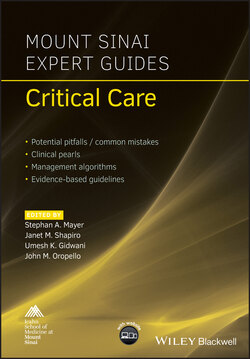Читать книгу Mount Sinai Expert Guides - Группа авторов - Страница 176
Gastrointestinal complications
ОглавлениеCritical illness is associated with a severe catabolic stress state which contributes to the risk of infections, increased length of hospitalization, and mortality. The Society of Critical Care Medicine and American Society for Parenteral and Enteral Nutrition now recommend early enteral nutrition initiated between 24 and 48 hours of admission.
Enteral nutrition increases blood flow to the GI tract, decreases bacterial translocation, improves immune‐mediated response in sepsis, and improves overall survival.
There have been numerous prospective randomized trials performed in the critically ill comparing the effects of enteral versus parenteral nutrition. These trials showed that parenteral nutrition had a higher number of complications associated with infections (particularly pneumonia and central line infections), while enteral nutrition had a significant reduction in hospital LOS, cost of nutrition therapy, and infection rates.
Critically ill patients have a higher risk of developing stress‐related GI lesions due to hypoperfusion of the gastric mucosa, reduction in the protective factors of the mucosa, and increase in gastric acid secretion. These lesions may result in upper GI bleeding which is associated with an increased risk of death in the ICU.
In a large, prospective, multicenter trial of 2252 ICU patients by Cook et al., the mortality of patients with stress ulcer bleeding was 49% versus 9% in those with stress ulcers, but without an episode of GI bleeding. It also identified mechanical ventilation and coagulopathy as the two main risk factors associated with stress ulcer‐related bleeding.
Acid suppressive medications effectively decrease bleeding rates and are therefore recommended as prophylaxis in high risk patients. Proton pump inhibitors and histamine 2 receptor antagonists have been shown to prevent GI bleeding in the critically ill and are recommended in ICU patients with high risk such as those on mechanical ventilation, or with sepsis or septic shock, coagulopathy, and a history of upper GI bleeding in the past 12 months.
The routine use of stress ulcer prophylaxis does not reduce overall ICU mortality and therefore the need for stress ulcer prophylaxis should be re‐evaluated once the critical period has passed.
